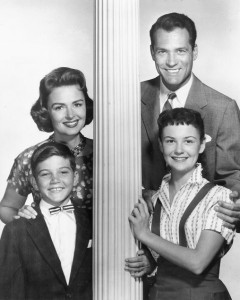In 2005, Cindy Sheehan, mother of a soldier slain in Iraq, was becoming the official face of the antiwar movement. The profundity of her loss and the sincerity of her bereavement made her moral authority seem, for a time, unassailable. Then Christopher Hitchens spotted, or thought he spotted, a crack in her armor.
In an e-mail to the editors of ABC’s Nightline, Hitchens alleged, Sheehan wrote: “My son joined the army to protect America, not Israel. Am I stupid? No, I know full well that my son, my family, this nation and this world were betrayed by George Bush who was influenced by the neo-con PNAC agendas after 9/11.” On the grounds that her remarks had brought “David Duke flying to Ms. Sheehan’s side,” Hitchens tarred them as a claim that the invasion of Iraq had been brought about by “a Jewish cabal.”
Sheehan ended up denying it, claiming that hawks had doctored in that line about war for Israel in the hope of discrediting her. But that wasn’t enough for antiwar pundit Alexander Cockburn, who intimated that Hitchens had once spoken skeptically of the accepted version of the Holocaust.
What nobody did was say, “You’re damn right a Jewish cabal sent red-blooded Americans to war!” or “You’re damn right the Holocaust is a myth!” Far from it — each player rushed to distance herself from such views and to pin them just as quickly on the other guy. When you’re dealing with two deep-dyed contrarians and a woman who understood world events in the broadest, most naive terms, this is remarkable, not to mention a relief.
It suggests that at least some of our conventional wisdom has a firm grounding in observable fact, and in our noblest impulses. Genocide, or at any rate good-faith attempts at it, has become too commonplace for anyone to believe the Nazis above such a thing. Mainstream American opinion is now so sensitized to the rhetoric of collective guilt that even a dog-whistle, once identified as such, becomes a death-knell for him who sounds it. (Quiz: Who won the Republican nomination last year? Answer: Not the guy who called Obama the food-stamp president.)
You can see a touch of the same delicacy in the feud between Patheos blogger Dawn Eden and her counterparts on the traditionalist blog Rorate Caeli, although, God knows, you have to look pretty hard. Rorate Caeli cited a blog post by an Argentine named Marcelo Gonzalez claiming that Pope Francis had been positively hostile to the Latin Mass while archbishop of Buenos Aires. Incensed (no pun intended) at what she considered a “vicious smear,” Eden wondered whether Gonzalez might be writing from some ulterior motive. Could the future pope’s friendliness toward the local Jewish community, in particular Rabbi Abraham Skorka. have set him off?
After checking around online, Eden decided she had a prima facie case that Gonzalez is an anti-Semite. It consists of his analysis of the Holocaust, which, in a Google-translated version, he renders “Hollowcaust.” Judging Rorate Caeli complicit in Gonzalez’ bigotry, she writes, “Don’t get your ‘reliable’ information about the Pope from a blog that venerates the Society of St. Pius X.”
Gonzalez has since translated his piece into what he considers proper English. (“Hollowcaust” has become “Holonarratives,” proving that Googledegook can sometimes have the sharper bite.) Essentially, he professes himself both agnostic on the Shoah’s casualty figures and scandalized that the Vatican should punish those who would deflate them. Gonzalez doesn’t name names, but that description would certainly fit former SSPX Bishop Richard Williamson, whose history of Holocaust denial temporarily scuppered dialogue between the Society and the Vatican.
Around this time, some people Eden identifies as Rorate Caeli readers began leaving “viciously antisemitic” comments on her blog. One, she forwarded to Fr. Angelo Mary Geiger of the Mary Victrix blog. Confirming that the author, who calls himself “I Am Not Spartacus,” is a Rorate Caeli regular, Fr. Angelo posts the comment in full. Declaring proudly that traditionalist Catholics are “anti-Jew,” and that rabbinic Judaism exists chiefly to destroy the Catholic Church, it is a nasty piece of work. Eden thinks it represents Rorate Caeli readers’ “true colors”; Fr. Angelo calls it “par for the course.”
If they’re right, then we should applaud New Catholic’s restraint. In his own response, he doesn’t start hollering about Simon of Trent, Andreas of Rinn, or any other beatified blood-libel victim. He doesn’t even mention that Eden herself is a convert from Judaism, much less imply that her conversion might be incomplete or a deliberate ruse. New Catholic calls her “Miss Eden”; if he’d but added “née Goldstein,” then “I Am Spartacus” and like-minded fellows would have pictured her tearing at grapes with murderous paws, and that, for his purposes, would have been the argument won.
Instead, New Catholic strikes a note of some-of-my-best-friends-are. Reminding Eden that Rorate Caeli had published the “first-ever online English translation” of a 1942 pastoral letter signed by the bishops of the Netherlands to protest the Jewish deportations, he tells her, “our Church did not begin in 1965.” He means: “Anti-Jew, hell. We’ve always been tight. What’s a little Nostra Aetate between friends?”
It’s a little like seeing Glenn Beck claim spiritual kinship with MLK. Even if New Catholic doesn’t believe a word he’s saying, it’s still a good sign that he felt obliged to say it. It testifies to the power of cultural norms over people who are proud to call themselves countercultural. A significant number of Rorate Caeli readers might prefer not to commit, as Bl. John Paul II put it, to “genuine brotherhood with the people of the Covenant,” but the guardians of the brand still see some advantage in making a show of it.
The post-conciliar bridge-building with the Jewish people, whose highlights include John Paul II’s plea for forgiveness and Benedict’s declaration of solidarity, aims at a mass conversion of hearts. That’s a mighty ambitious project. Let’s face it — if a majority of Catholics defy Church teachings on practically everything else, is it any surprise that members of a self-declared fringe won’t revise their view of the Jews as Christ-killers and worse? If, in this imperfect world, the best traditionalists can offer is a little taqiyya, I’ll take it.















